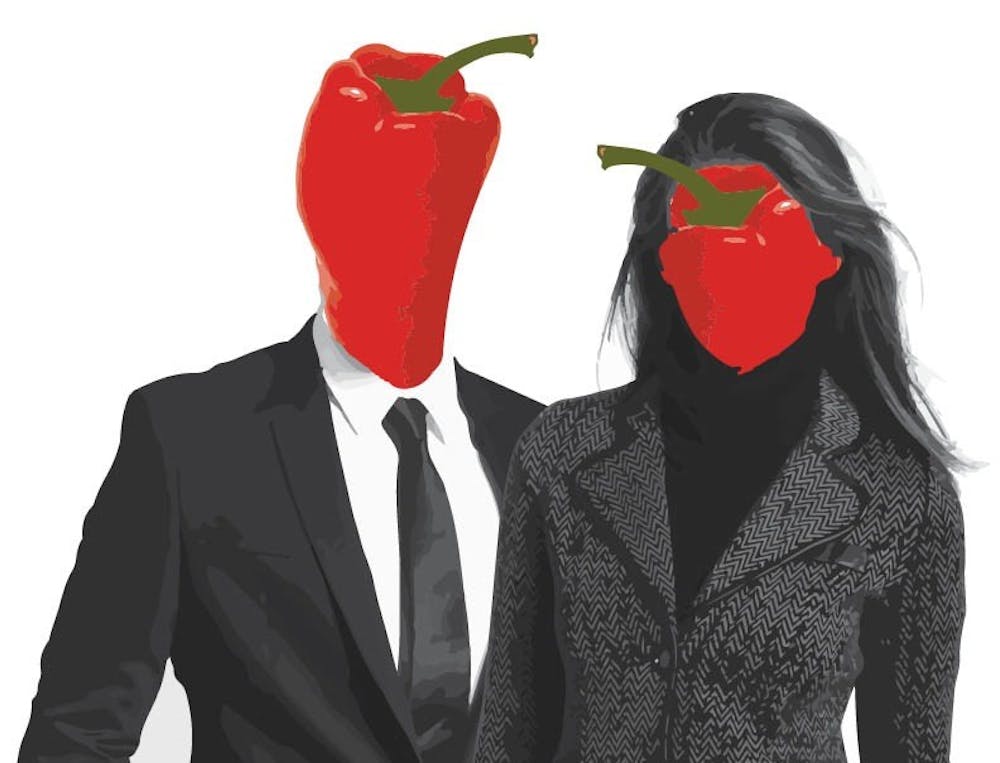It seems inconsequential: hot or not? As students sign up for next semester’s classes, they can choose their preferences based on the review site RateMyProfessors.com when they assess one of 1,565 Ball State faculty members with profiles on the site. The concept, though, does not sit well with some professors.
According to the website, it contains more than 14 million reviews for professors and instructors of more than 7,000 schools in the United States, Canada and the United Kingdom. Since its start in 1999, college students have used the website to evaluate professors on criteria such as ease of class, helpfulness, clarity and of course, hotness.
Some professors, though, say the website is inaccurate and insulting.
Cheri Ellefson, a women’s studies instructor, said evaluating professors on their hotness could be a dangerous practice, especially when female professors are involved.
“When a female professor walks into a classroom, she knows that she’s going to be evaluated on her skill and her performance,” she said. “But she never walks in online or in person into the classroom thinking that her appearance is going to be marked one way or another.”
Kristen Ritchey, an associate professor of psychological sciences, agrees there is an imbalance. She has noticed when she tells students to review a guest speaker or a talk, female speakers will often elicit more comments on appearance than a male speaker.
“What are you achieving by saying that one professor is hot and objectifying her?” Ellefson asked. “Once you objectify her according to her beauty, you’ve made her an object to all her colleagues as well. It’s not a compliment at all. It’s completely unsolicited in general.”
Melinda Messineo is an associate professor at Ball State who knows what it is like to be dismissed because of her physical attributes. She also is the chairperson of the Department of Sociology.
Messineo said she is not personally offended by the amount of chili peppers she has received from students throughout the course of her employment. She said the rating is not ill-intended and she recognizes the practice as a mindset deeply ingrained into our culture.
Her issue with the website revolves around the qualities of a teacher not represented on the website by symbols, such as the chili pepper.
“Wouldn’t it be great if we could come up with a different icon to indicate other values?” Messineo asked. “Perhaps an ear that says this teacher is a good listener or a scale that says the teacher is fair.”
Jagdish Khubchandani, a community health education assistant professor, does not believe the hotness rating is completely reliant on physical beauty.
Khubchandani initially heard of Rate My Professors when he met his wife in June 2012.
She shocked Khubchandani when she told him his students thought well of him.
“I thought she was a stalker,” he said. “My initial evaluation is from the school, and no one is supposed to know about these evaluations.”
After some prodding, she revealed the name of the website from which she had gathered information about Khubchandani, who boasts the highest hotness rating for Ball State professors on the website.
Khubchandani said he thinks students taking the poll are more likely to choose the “hot” option if they give high ratings on other categories, such as the level of difficulty.
He said a teacher should watch their behavior in the classroom, dress professionally, keep personal issues out of the classroom and above all, give them something from the class to take into the real world.
“If you do all of that, then maybe they’ll think that you’re attractive,” he said. “To me, it’s the whole package.”
Messineo agreed that this is a possibility.
“Research indicates that students connect with faculty who are enthusiastic and they believe care about them as individuals,” she said.
Reuben Allen, a geography instructor who claims the third hottest Ball State slot, takes a less introspective approach to his high chili pepper rating.
“It’s definitely flattering,” he said. “But [it’s] also embarrassing because when people start kidding you about it, there’s nothing you can really say in response.”
But some professors, such as Ritchey and Ellefson, do not think the rating is a compliment.
“I work very hard at my job,” Ritchey said. “And it’s frustrating to think that I’m being evaluated on something so irrelevant to my performance.”
The average overall rating for the 50 hottest Ball State professors is a 4.5 out of 5, higher than the average Ball State professor rating of 3.67.
Ellefson said she does not believe most students’ goals involve finding an attractive professor and the website makes an unfair assumption.
Dalton Rinehart, a senior telecommunications major who uses the website, said he has never decided to pick a certain teacher based on their attractiveness.
“It should be based on how well they teach and not how they look,” he said.
Rinehart said he primarily uses the website to get a feel for professors while registering for classes.
Erin Soller, a sophomore elementary and special education major, said her experience with using the website has been mixed. Favorable reviews have led her to professors she has loved as well as professors that caused her to drop the class.
“I think, in a way, it does give students a perspective of what to look for in a classroom, like how to be more prepared,” she said. “I think that the younger generation in particular really values feedback and really values preparation.”
Still, Khubchandani challenges the validity of the website. He said the people who post have most likely had extremely positive or extremely negative experiences, which may lead to an incomplete picture of a professor.
“I’m teaching 140 students and only two of them would rate me,” he said. “Even if it’s a public poll, it’s not a good poll.”





